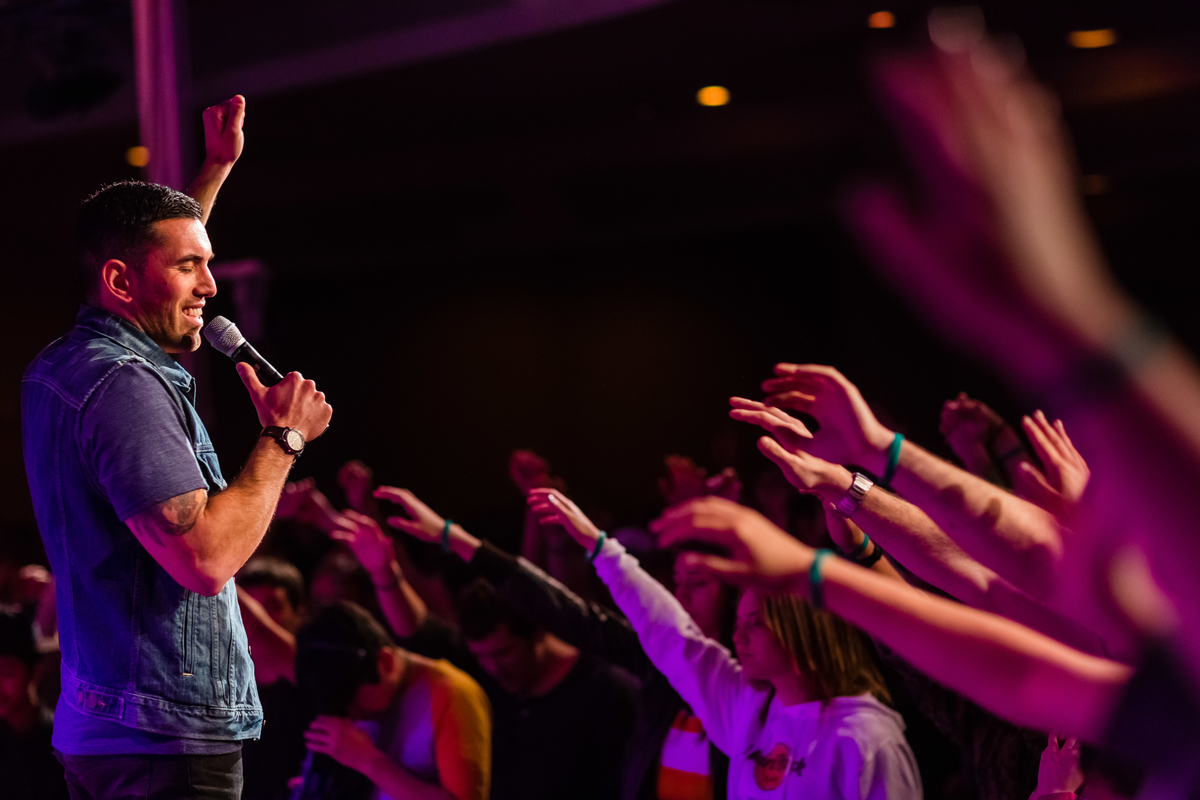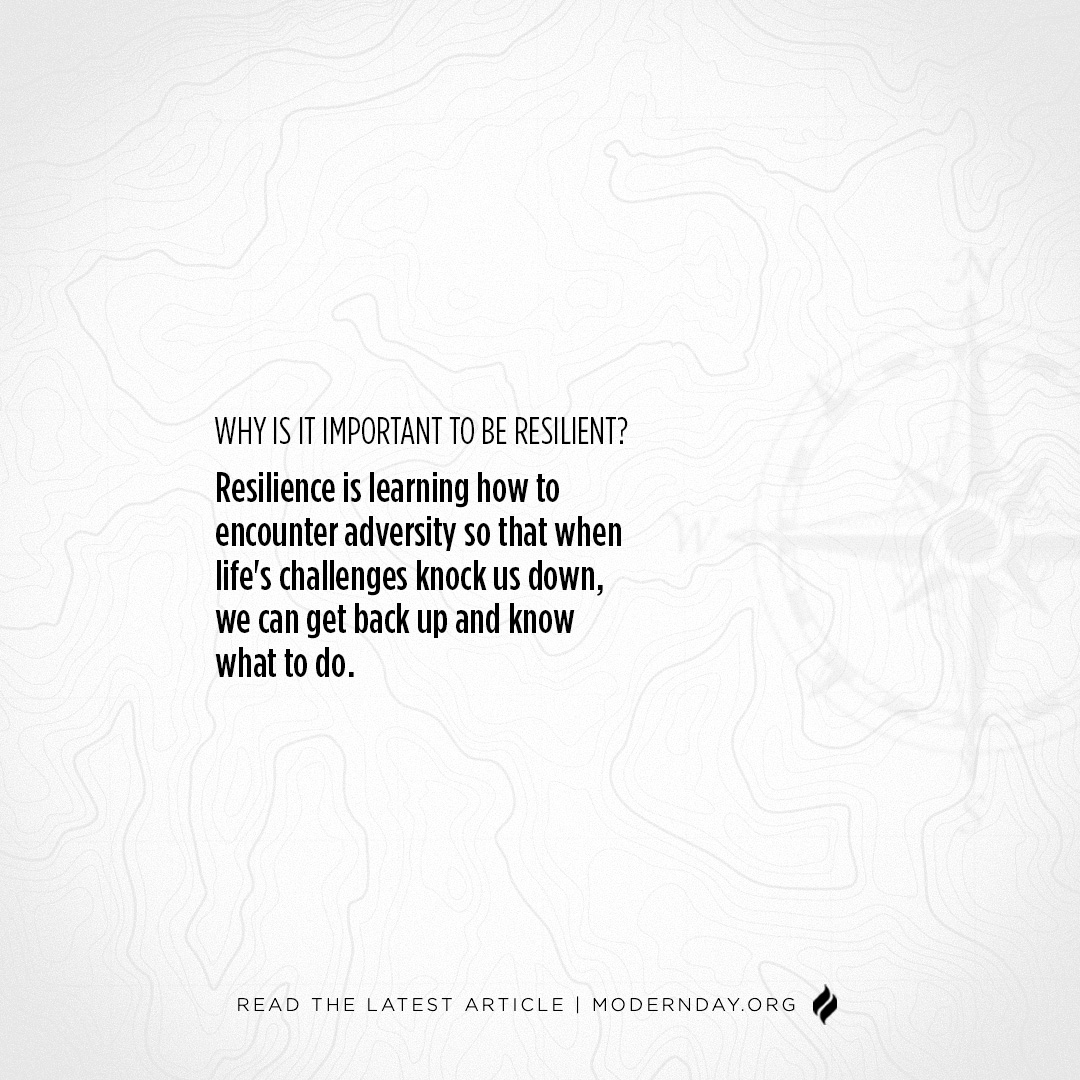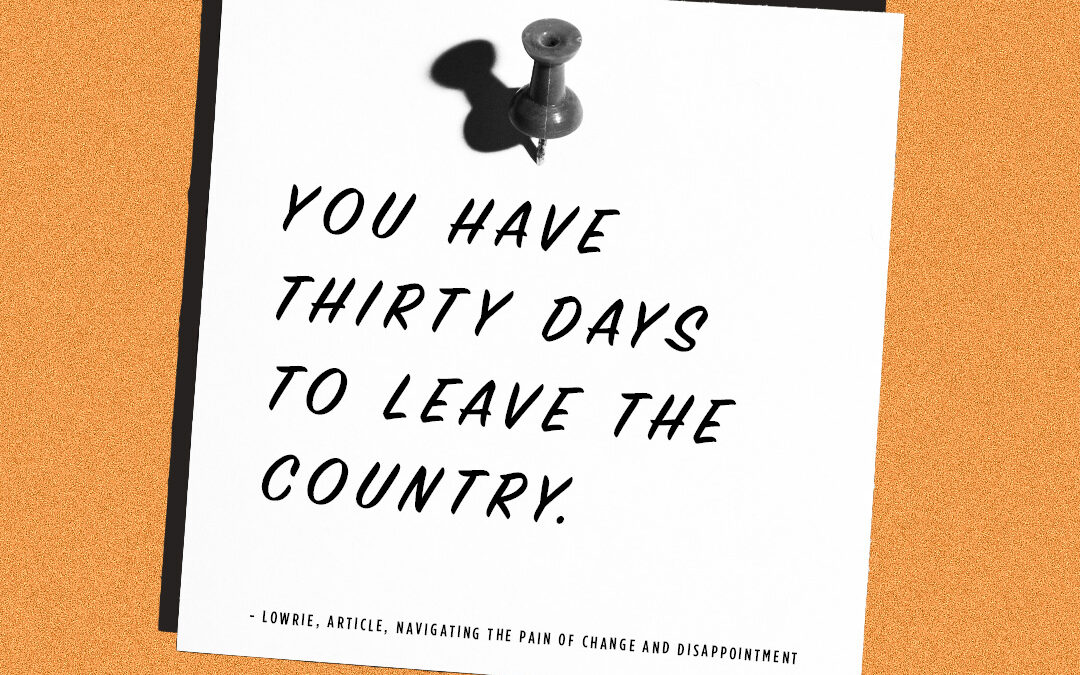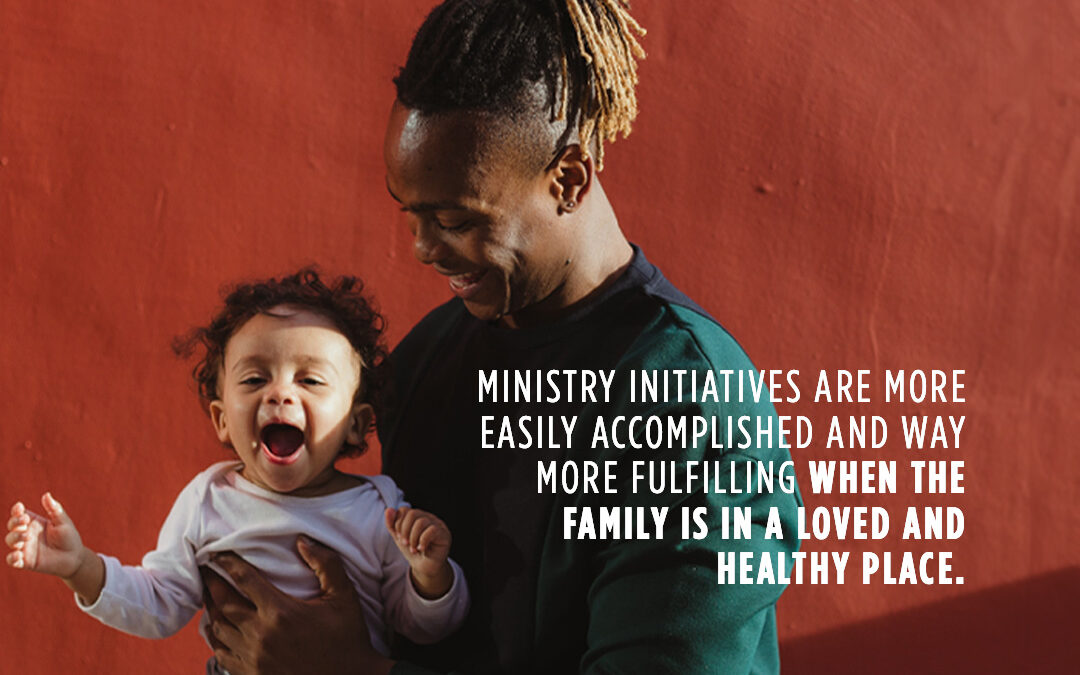Pt 2. Latin America: The Places, the Pastors, the Possibilities and the Pandemic That Changed Them All
The Pastors
“They saw the works of the Lord, his wonderful deeds in the deep.
For he spoke and stirred up a tempest that lifted high the waves.
They mounted up to heaven and went down to the depths; In their peril their courage melted away.
They reeled and staggered like drunken men; they were at their wits’ end.”
These words from Psalm 107 could be borrowed to paint a picture of what life has felt like for many pastors in Latin America during the past two years. Without a doubt, there is plenty to give testimony of––wonderful deeds God did in churches––and yet the journey itself would look much like the image this Psalm paints. One of a ship blown off course by a tempest, battered by winds and waves. The kind of dramatic seas that seasoned sailors know not to fight against.
I have a deep admiration for pastors in general, but I have a special appreciation for those throughout Latin America. Over the past decade, I’ve had the privilege to serve with them and among them and have formed strong bonds with these seasoned sailors.
In my travels, I have watched them, in person, lead and love and serve their church families. And it is during the moments spent together after a ministry event or weekend service, doing what Latin Americans are known for doing well, eating good food and telling stories, that I’ve witnessed what many of them are made of.
Perhaps one of the reasons I am so fond of Latin American pastors is the same reason my favorite movies are the ones that start with that simple yet powerful phrase, “Based on a true story.” I esteem these leaders because I esteem the stories God has been writing through them.
And that was pre-pandemic. Since then, the travel has ceased and all the moments we spend together are on Zoom, in phone calls and over WhatsApp messages.
And yet, their stories continue to be straight out of the book of Acts.
Leading any church in any region is difficult.
Beyond leading, pastors must know how to inspire spiritual growth, communicate vision effectively, be savvy business managers, think like statisticians, all while being keen counselors and practicing the arts of diplomacy and arbitration.
Throw on top of that the skills of marketing and community building. According to a Forbes article titled, “Ranking the 9 Toughest Leadership Roles” being a pastor is more demanding than being a CEO, a United States congressperson, or even a mayor.
That was before the pandemic, and the study assumed that like the other professions on the list, being a pastor was their only job. And yet when it comes to many pastors in Latin America, being bivocational continues to be the only way to keep churches financially viable while making sure their families get fed.
In essence, pastors in the region have had two massive fronts to battle during the pandemic: their non-paying or low-paying job as a pastor and their paid job, which makes the other possible.
The first represents their church families, with all the challenges to keep their “doors open.” They’ve had to figure out digital church and online alternatives with limited tech and resources, and live through the trial and error of it all in front of their congregations. They’ve had to maneuver staying relationally and spiritually close to their congregations in a region that has had some of the strictest quarantine measures.
Simultaneously, as they pivoted and adapted to ensure church continuity, they had to figure out their paying jobs as well.
Those who ran small businesses had to figure out how to keep the store front “open” and their products or services flowing. Those working for others had to adjust to pay cuts and company reorganizations, even lay-offs.
I know a pastor who was a dean of an engineering program at a large state-run university in Argentina. When the quarantine hit in 2020, he worked feverishly during the day to transition students to virtual learning, then spent the rest of the day and night working with church staff and volunteers as they cared for their community––and planned for another weekend of church online.
Like these pastors, I’ve known pastors whose primary sources of income dried up overnight, leaving them scrambling to find personal stability as they endeavored to stabilize their church.
The stories pre-pandemic were always harrowing and inspiring, drenched with the grace of God and supernatural strength. And now, the stories I hear of deep loss, unrelenting pressure, financial hardship, governmental restrictions, and congregations relationally weary from isolation and fear, make me wonder if pastors in the region relate to these specific words of Psalm 107.
“They were at their wits’ end…”
And yet they continue to stand.
They continue to lead. They continue week after week ensuring that the family of God has a place to gather and grow.
There is absolutely no doubt that the work pastors do in Latin America is exponentially more difficult now than it was before the pandemic. Yet I’m not writing any of this to elicit sympathy on their behalf. Instead I write it as a standing homage to these heroic men and women who continue to lead and love and serve their cities sacrificially.
There is also a silver lining in their stories of struggle and heroism. Two things that have made them stronger having gone through the trials of the last two years.
New Allies
Latin American pastors have long been known for being turfist. It has been an every-pastor-for-themselves environment, where there is little collaboration seen between pastors in the same city. Pastors shared very little with one another from church to church, and if we’re talking about crossing over any denominational lines? Forget it.
The pandemic has changed that.
There is a new openness when it comes to collaboration, both in terms of a readiness to help each other and ask for help.
In August of 2020, a first of its kind live online marriage conference was initiated by Winshape Marriage that set its target on the region. The original hosting church inquired if it could expand the reach of the event from simply its church body and open the invitation to other churches to make the event their own as well. In essence, the idea was not to invite churches to participate, but to be part of the event itself.
Over 1,200 churches from 9 different countries officially joined together to reach over 387,000 screens online (that is three-quarters of a million people) for two nights of their live event.
Beyond the unprecedented unity of the church in this region in serving married couples was the fact that the tech teams for all the churches worked together and connected over WhatsApp. They now had allies in other churches to help the many churches that had no clue how to initiate online services or leverage free online platforms get their jumpstart.
Pastors across denominational lines saw the fruit of working together. What a powerful and unifying moment. Relationships were forged that continue to produce fruit today.
New Friends
It’s hard to imagine the emotional burden that our pastor friends are carrying today. The loss of life in Latin America has been staggering, and the traditional ways of mourning have been interrupted by strict Covid-protocols.
Pastors have seen divorces skyrocket, domestic abuse intensify, and depression, suicide, and anxiety become familiar topics to address in their church families. It’s been difficult for pastors to have healthy grief cycles due to the relentlessness of circumstances.
It is one thing to reach out to ask for help with a church methodology or program, it’s quite another to reach out to ask for personal help, especially in a historically machismo culture that demands men to hide their secrets and their emotions.
More and more we’re starting to see pastors lean on one another as friends––reaching out to one another to help shoulder the burden of grief. It is in these trenches that friends are being made, the kind of friend that sticks closer than a brother.
Over the past six months, the majority of the Zoom calls I’ve had with these pastors have included a space where they have unloaded their hearts and been vulnerable about their self-doubts, weariness, and pain.
And each time it happens, I feel the region growing stronger, because it takes a strong person to ask for help and to be real with where they are at emotionally.
The pandemic is far from over for the region of Latin America. There is still much to lead the church through. And I am hopeful knowing that God has raised up a resilient generation of men and women in the region who continue to hold fast to their calling. Whose hearts know that when they are at their wits’ end, that the Psalm does not end there but continues…
“Then they cried out to the Lord in their trouble, and he brought them out of their distress. He stilled the storm to a whisper; the waves of the sea were hushed. They were glad when it grew calm, and he guided them to their desired haven. Let them give thanks to the Lord for his unfailing love and his wonderful deeds for mankind.” Psalms 107:28-31
It is said that calm waters never made good sailors.
Coming out of these tumultuous times we will see some of the best church leaders emerge––sea legs ready to follow God and serve his people with a new strength, whatever the future may hold.







